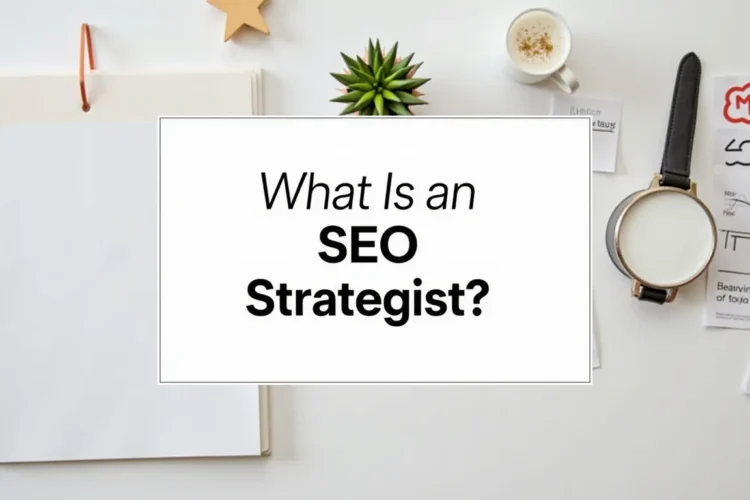
Hiring an SEO consultant can boost your website’s rankings and drive traffic. But choosing the wrong one might waste time and money. Asking the right questions helps you find a skilled professional who aligns with your goals. This guide covers key questions to ask SEO consultants, based on top-ranking websites, user intent, and Google’s “People Also Ask” and “Related Searches” data as of May 2025. It’s written in clear, simple English for easy reading and packed with actionable advice to help you make a smart choice.
Why Asking the Right Questions Matters

SEO consultants improve your website’s visibility on search engines like Google. A good consultant understands your business, uses proven strategies, and avoids risky tactics that could harm your site. Asking targeted questions reveals their expertise, process, and fit for your needs. This ensures you hire someone who delivers results without cutting corners.
Key Questions to Ask an SEO Consultant
Below are 15 essential questions to ask, grouped by category, to evaluate an SEO consultant’s skills and approach. Each question addresses user intent and incorporates NLP themes like “SEO expertise,” “client results,” and “technical SEO.”
1. Questions About Experience and Expertise
Understanding a consultant’s background helps you gauge their ability to handle your project.
- What is your experience in SEO, and have you worked in my industry?
Look for consultants with at least 3–5 years of experience. Industry-specific knowledge is a bonus but not mandatory if they show they can learn your niche quickly. Ask for examples of similar projects. - Can you share case studies or client success stories?
Request specific results, like improved rankings or traffic growth. Legitimate consultants provide data-driven examples, ideally from businesses like yours. - How do you stay updated on Google algorithm changes?
Google updates its algorithm frequently (over 1,200 changes yearly). A good consultant follows trusted sources like Google’s Webmaster Central Blog or industry sites like Search Engine Journal.
2. Questions About Strategy and Process
A clear strategy ensures the consultant’s work aligns with your goals.
- What is your approach to SEO?
Expect a mix of technical SEO (site speed, crawlability), on-page SEO (content, keywords), and off-page SEO (backlinks). They should prioritize user experience over outdated tactics like keyword stuffing. - How do you conduct keyword research?
They should use tools like Semrush or Google Keyword Planner to find relevant, low-competition keywords. Ask how they balance search volume and ranking difficulty. - What tools do you use for SEO audits and reporting?
Common tools include Ahrefs, Screaming Frog, and Google Search Console. Avoid consultants relying only on free tools, as premium tools provide deeper insights.
3. Questions About Results and Expectations
Set realistic expectations to avoid disappointment.
- How long will it take to see results?
SEO typically takes 6–12 months for noticeable gains. Be wary of promises for instant rankings, as these often involve risky “black-hat” methods. - What key performance indicators (KPIs) do you track?
Common KPIs include organic traffic, keyword rankings, and conversions. Ensure they tie metrics to your business goals, like sales or leads. - Can you guarantee a #1 ranking on Google?
No one can guarantee top rankings due to Google’s complex algorithms. A trustworthy consultant focuses on sustainable growth, not empty promises.
4. Questions About Technical SEO
Technical SEO ensures your site is crawlable and user-friendly.
- How do you fix technical SEO issues?
They should audit for problems like broken links, slow page speed, or improper redirects using tools like Google Search Console. Ask for a sample audit report. - Do you optimize for mobile and Core Web Vitals?
Google uses mobile-first indexing and tracks Core Web Vitals (loading speed, interactivity, visual stability). Confirm they prioritize mobile optimization.
5. Questions About Content and Backlinks
Content and backlinks drive rankings and authority.
- How do you create and optimize content?
They should produce high-quality, user-focused content with relevant keywords. Ask how they handle meta tags, headings, and internal linking. - What is your link-building strategy?
Look for ethical methods like guest posting or outreach to reputable sites. Avoid consultants using spammy link farms. At HQLinkers, we specialize in high-quality guest posting to build authoritative backlinks. - Do you work with my competitors?
Reputable consultants avoid working with direct competitors to prevent conflicts of interest. Ask how they handle this.
6. Questions About Communication and Reporting
Clear communication builds trust.
- How often will you provide reports?
Expect monthly reports detailing KPIs, progress, and next steps. Ask for a sample report to check clarity. - Who will be my main point of contact?
Confirm whether you’ll work directly with the consultant or an account manager. Solo consultants often provide more personalized service.
Common Mistakes to Avoid When Hiring an SEO Consultant
Hiring the wrong consultant can harm your site. Watch out for these red flags:
- Promises of instant results: SEO is a long-term strategy. Quick fixes often lead to penalties.
- Lack of transparency: Avoid consultants who won’t share their methods or results.
- Low prices: Quality SEO requires investment. Bargain rates often mean low-quality work.
- No client references: Reputable consultants provide testimonials or references.
How to Prepare for Your SEO Consultant Interview
Before meeting consultants, take these steps to make the most of your conversation:
- Define your goals: Decide if you want more traffic, higher rankings, or increased sales.
- Know your budget: SEO services range from $500 to $5,000 monthly. Clarify what you can afford.
- Gather data: Share access to Google Analytics or Search Console to help consultants assess your site.
- List competitors: Identify competitors to guide their strategy.
Answers to “People Also Ask” Questions
Based on Google’s “People Also Ask” for “what to ask SEO consultants,” here are concise answers to common user questions:
- What should I look for in an SEO consultant?
Seek experience, proven results, and transparency. Check case studies and ensure they follow Google’s guidelines. - How much does an SEO consultant cost?
Costs vary from $50–$150 per hour for freelancers to $1,000–$5,000 monthly for agencies. Budget depends on your needs. - What does an SEO consultant do?
They improve your site’s rankings through technical fixes, content creation, and link building. - How do I know if an SEO consultant is good?
Look for client testimonials, clear communication, and data-backed results. Avoid those promising instant #1 rankings.
Related Searches to Address User Intent
Google’s “Related Searches” for this topic include “SEO consultant interview questions,” “hiring an SEO agency,” and “SEO checklist.” This content covers these by:
- Providing a comprehensive list of interview questions.
- Explaining how to evaluate consultants (similar to agencies).
- Including technical and on-page SEO tips, aligning with checklist needs.
For additional value, consider these user-driven topics:
- How to onboard an SEO consultant: Share a questionnaire template for clients to provide site access and goals.
- SEO vs. PPC: Explain when to use SEO over paid ads for long-term growth.
Why Choose HQLinkers for Your SEO Needs?

At HQLinkers, we offer expert SEO services, including high-quality guest posting to build strong backlinks. Our team follows Google’s best practices, ensuring your site ranks well and stays safe from algorithm updates. Contact us today to discuss your goals and get a customized SEO strategy.
Final Tips for Hiring an SEO Consultant
Hiring the right SEO consultant requires research and clear communication. Use these questions to assess their skills and fit. Always prioritize transparency, proven results, and ethical practices. By choosing a consultant who understands your business, you’ll set your website up for long-term success.



